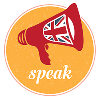What is ‘would”?
Would is an auxiliary verb or a modal auxiliary verb. Would is always used with a verb but depending on how we use ‘would’ the main verb changes form.
Structure in positive = subject +
would* + main verb (I would like)
*would is invariable which means that it never changes form.
Would in the negative =
would not (contractions is wouldn’t) ( I wouldn’t like)
Making questions =
would + subject + main verb (Would you like?)
How and when to use ’would’?
We use ‘would’ mainly in the following 3 situations:
-
would for the past
-
would for the future in past
-
would for conditionals
There are also other situations where we use would which I will talk about after I have explained the 3 main situations it’s used for.
Would for the past
We often use would as a kind of past tense of will or going to:
-
When he was younger, he knew that his sister would become a doctor.
-
I thought it would be sunny so I brought some sun cream with me on holiday.
Using would as the past tense of will or going in reported speech:
-
She said that she would buy some eggs. ("I will buy some eggs.")
-
The candidate said that he wouldn't increase taxes. ("I won't increase taxes.")
-
Why didn't you bring your umbrella? I told you it would rain! ("It's going to rain.")
We often use would to talk about past habits, similar to used to. However there is a difference between used to and would to talk about past habits. Would expresses a past habit with usually a feeling of nostalgia whereas used to only express a past habit.
-
My mother would make cookies for me every day after school. (by using would we understand that this is a nice memory of something which happened regularly in the past)
-
As a child, I would go camping with my friends every Friday during the summer.
Would for the future in past
When talking about the past we can use would to express something that has not happened at the time we are talking about. This means that at the time of the main action which is in the past simple below, the action with would had not happened.
-
When I arrived in Dubai in 2005, I met the women I would one day marry. (in this example, would marry is in the future of arrived in Dubai)
Would for conditionals
We often use would in the second and third conditionals:
-
If he moved to another country, he would not earn as much money as he does here. (Conditional 2)
-
If I had seen you in the supermarket, I would have said hello. (third conditional)
Using the same structure as the conditional, we often use would to give advice:
-
I wouldn't eat that if I were you.
-
If I were in your place I'd refuse.
- If you asked me I would say you should go.
So above are the 3 main reasons we use would. However, there are also other situations where we use would.
To express a desire: I would like to buy a house.
To ask questions politely: What would you like to eat tonight? (more polite than what do you want to eat tonight?)
To express an opinion: I would imagine that the situation will improve soon.
To express a wish: I wish you would speak Spanish.
To express uncertainty: he seems he would be getting fired soon.
As you can see from the examples above, there are many ways in which we use would and I have to agree with people learning English, it is not easy to sometimes understand the small nuances between the different situations. If you're interested in learning more about grammar, check out our English courses in Dubai and Ras Al Khaimah.

